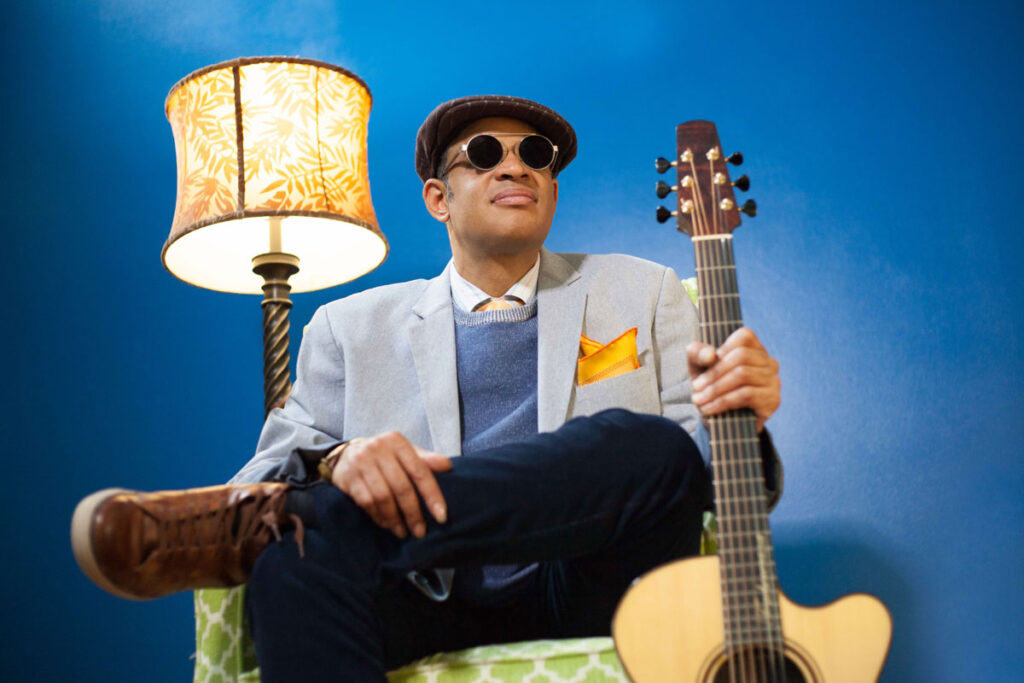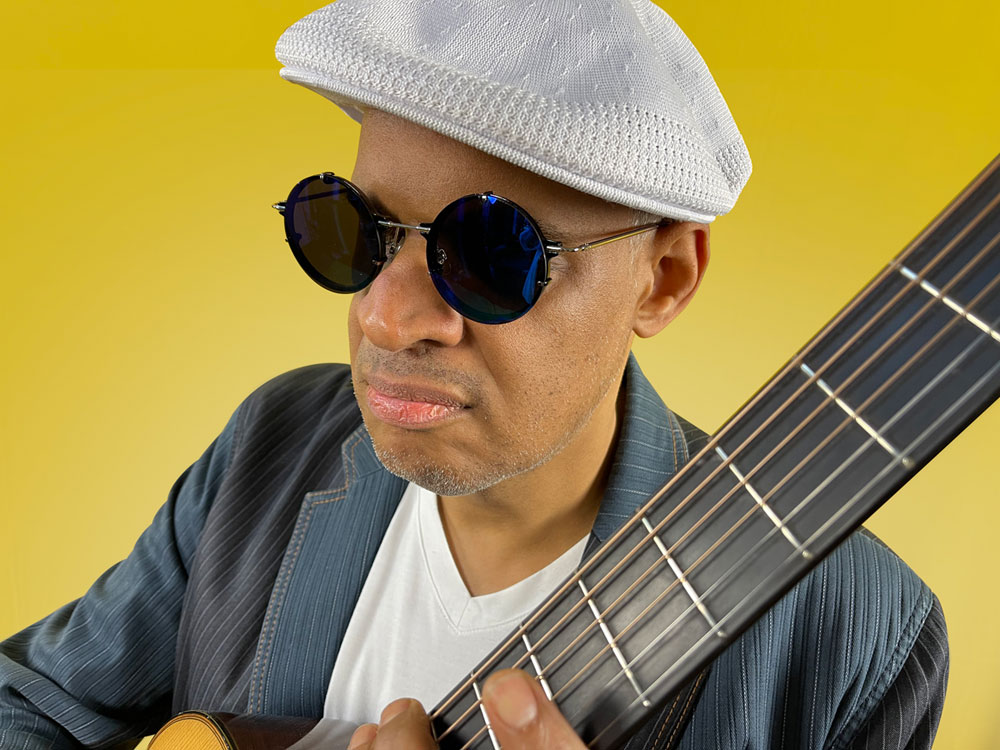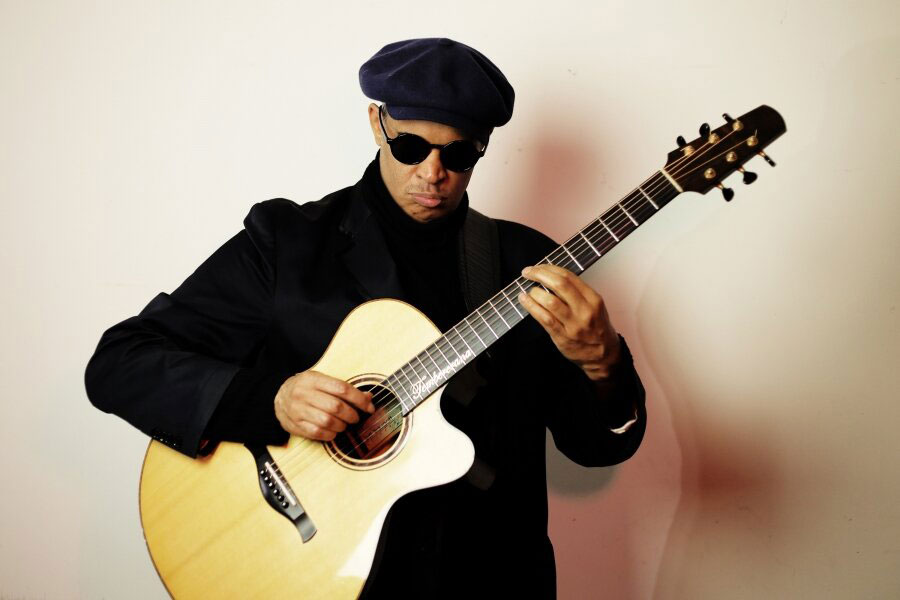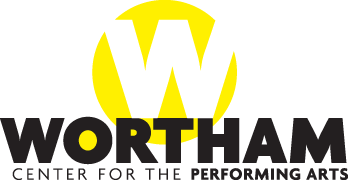Raul Midón lives in a world of sound. Blind since birth, the singer-songwriter and guitarist sets no limits on his musical creativity, writing lyrics that explore the senses with unworldly vibrance. Dubbed “an eclectic adventurist” by People magazine, Midón sings with the passion of the best classic soul singers and plays guitar with the instrumental chops of history’s most accomplished jazz musicians. The New York Times once praised him as “a one-man band who turns guitar into an orchestra and his voice into a chorus.”

The Wortham Center recently had the pleasure of speaking with Midón ahead of his highly anticipated Asheville performance — set for 8 p.m. Saturday, April 15 on the Diana Wortham Theatre stage — to learn a bit more about his influences, career highlights and his approach to music.
Wortham Center: Tell me a little about yourself and how you got started in music. What drew you to music originally — and to guitar in particular?
Raul Midón: I was born prematurely in rural New Mexico in 1966 and lost my sight early on from hyper oxygenation. My parents were one of the first mixed-race marriages. My mother was an artist and African American from New York City, and my father is an Argentine who was a professional dancer. They met and fell In love in Santa Fe. Our household was filled with music — jazz from my New York family and everything else from my Argentine father’s side.
New Mexico is culturally Hispanic. I was surrounded by flamenco guitarists and was given a guitar early in my life. I had several teachers, both classical and flamenco. After a brief try at drum set, I turned my attention to guitar — much easier to transport a guitar as a blind kid! Hehe.

When did you find your “style” and begin experimenting with playing multiple instruments at once and using your voice as its own, unique instrument — creating a full-band sound all by yourself? Was that something that took you a long time to master, or did it seem to come naturally to you?
I play multiple instruments but not all at the same time. It’s only on certain pieces that I play percussion together with guitar, and of course I sing and improvise with my voice so that’s where that came from. I can noodle on the piano too. When I first moved to New York City, I realized I had to be myself to the max in order to garner attention. Prior to that move, I was already working on writing and recording my original music. However, I worked as a sideman with Shakira and as a studio background vocalist on Latin records. When I moved to New York I knew I had to narrow the focus to just my original music.
I read a really interesting quote from you recently, where you talked a bit about your approach to songwriting, as a person who is blind. What kind of effect does this have on your music? How might your lyrics set you apart from other songwriters, but also resonate with people regardless of their abilities?
As a blind person I attempt to write from that perspective. For example I might say listen to something or touch something as opposed to looking at something.
Tell me about some of the highlights of your career. You’ve played with such an impressive roster of musicians throughout the years. What are some notable moments or favorite memories from these collaborations?
So many high points. Jason Mraz saw me early on and booked me to open for him (I’m 10 years older than he is). Paquito D’Rivera on the jazz side booked me to work with him. Then, after I appeared playing solo guitar and singing “State of Mind” on “Letterman,” kids of famous musicians seemed to be bringing their parents to hear me — like Bill Withers, Joe Perry, Dean Parks. I ended up working with Bill Withers on a song, and there’s a documentary “Still Bill.” Another highlight was working with Spike Lee on a song for his movie “She Hate Me.” Honestly, there are too many highlights. I’ve been very fortunate to work with so many greats.
What music will you be bringing to your Asheville performance? What can audiences expect from the show, and why should they get excited to come out and see you?
Since 2017, I’ve had two Grammy-nominated albums: “If You Really Want” and “Bad Ass and Blind.” I’ll play works from those albums together with earlier tunes.
Is there anything else that you want to mention that we haven’t covered yet?
It’s really important to me that we help restore the performing arts sector that was so badly hurt during the pandemic. I urge people to come out and see shows. The performing arts are great for the soul, and it’s a major economic force in the United States. We need to support the arts! It makes us whole. Peace!


